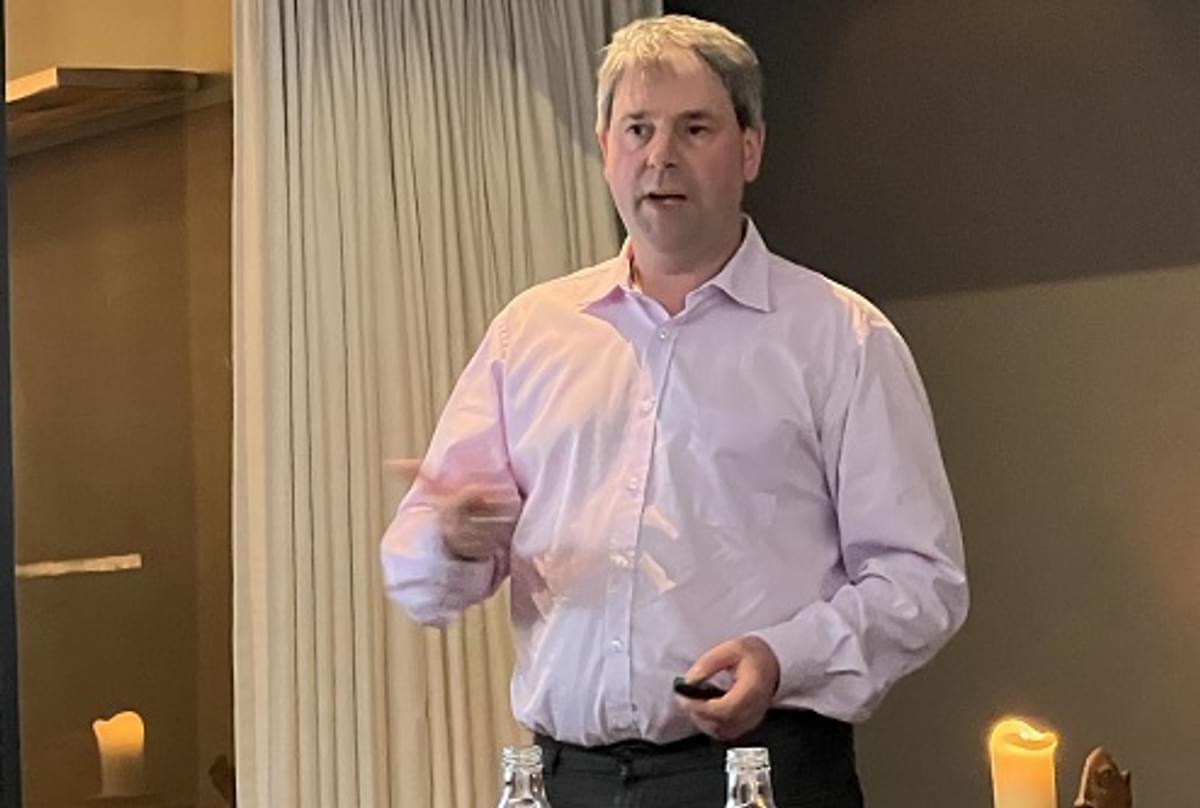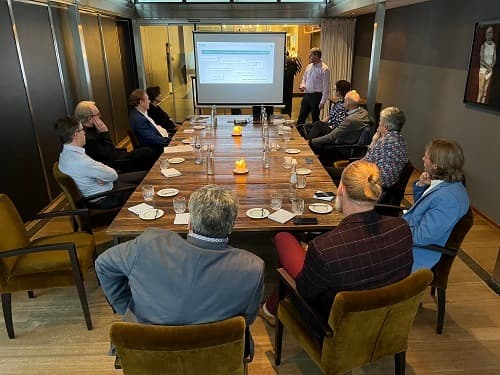Take people with you as you grow into data-driven business
Not only does the quality of the data have to be excellent, so do the people working with it. So pay close attention to training and how employees feel about their work. Peter Bos of Medi-Market gives this message to several IT leaders present at the Belgium CIO Round Table in Leuven. Jens Löhmar of Workday agrees with Peter Bos's words.

Bos, CIO and supply chain director at Medi-Market Group, recounts during a roundtable discussion how this chain of pharmacies is growing into a data-driven enterprise. The discussion will take place in Leuven and feature a dozen participants, all CIO. Medi-Market operates mainly in Belgium and offers a wide range of drugs, vaccines, tablets, medicines and other related products. The company caters to hospitals, government institutions, nursing homes, veterinary clinics and various other healthcare facilities. "We feel like a loner in this market," says Bos. "Sometimes looking for competitors."
But that position does not make the firm sit back. On the contrary, it is doing everything it can to please its customers so that customer satisfaction remains as high as it is now. That means, among other things, flexible processes and knowing exactly what customers need. Data are the rock in this.
"But our employees are crucial. They need to feel comfortable with the systems they work with. And know what they are doing. You want to prevent them from blaming 'the system' if something doesn't go quite to plan," says Bos.
New approach
The Belgian group was founded in 2014 with the aim of functioning as a one-stop shop for the health and wellness sectors. And thereby break the monopoly of pharmacies. Bos speaks of "spreading healthcare expertise more widely". Head office and warehouse are located in Nivelles (or Nijvel in Dutch language) in the south of Belgium.
Since then, the number of employees, turnover and the number of shops have grown steadily. It now employs a thousand people with diverse backgrounds in healthcare and wellness.
The group's rapid growth and internationalisation did take their toll. What remained are the efficiency in the logistics chains, the passion and commitment of the employees in this family business. But issues arose such as insufficient data quality, the need to have a lot of knowledge of that data in order to work with it, lack of standard definitions, making it difficult to compare things, and no unified way of working. Moreover, the data visualisation tool in use was nearing its technical end. "Time to realise a new approach," says Bos. "In which we grow into a data-driven enterprise."

Only one source
In a before-and-after comparison, Bos makes clear what has changed. For instance, employees can now extract data from just one source, where previously several sources appeared to be available; also depending on the skills of the user.
Also, only one outcome is available, to be accessed via a central platform. Previously several, and often ending in an Excel sheet. The data model is unified. Where first several tables appeared to be available for the same entity, now one fact table is present.
Whereas previously nothing at all was regulated in terms of data management and ownership, now governance is regulated and the business owns the data.
The implementation of this transition is still in progress, by the way.
Easy to use
Bos is talking about the technical implementation here, but the human aspects play just as much a role. For instance, the CEO is a sponsor of the journey towards the data-driven company. Bos calls it important that staff have easy access to the desired data and that it is easy to use. Staff receive training in working with powerBI and have clear and accessible documentation. A number of staff have been appointed 'ambassadors' to propagate the new way of working. And a small BI team is in place.
Furthermore, it is impossible to extract data in multiple ways; there is only one way.
Medi-Market wants to move towards solid and clear forecasts and eventually even a digital twin of the organisation. After all, if everything is digitised, you can test in the 'twin' what results a proposed change in logistics or customer relations, for example, will have.
Starting small
Bos points out that the transition to a data-based organisation stands or falls with the basic set-up of data models and the use of the data. Uniformity trumps all. Ensure proper IT security, including data recovery plan. Arrange that the system is always up and running.
Make sure employees trust the data and want/can try new ideas to their heart's content. His main lesson: Think big, start small!
During the discussion, it appears that Jens Löhmer agrees well with Bos's words. Löhmer is CTO of Workday, a cloud-based software company offering financial, HR and planning applications.
Digital maturity
In his contribution, Jens Löhmar, CTO of Workday, emphasises that it's all about digital maturity. How far along are companies in establishing the underlying fundamentals of a data-driven strategy in terms of their enterprise/ERP application landscape? Do they have unified enterprise application platforms that manage data, regulate data quality and deliver data that the company owns and trusts? According to Löhmar, companies that have invested in unifying their enterprise applications are much more likely to implement a successful, trusted and widely accepted strategy for a data-driven enterprise.

Jens Löhmar, CTO of Workday
Workday helps companies achieve digital maturity faster, with less risk and higher ROI compared to other HCM, Financial Management and Planning solution providers. Indeed, an organisation needs to think big: a holistic approach to technology and application modernisation.
"Data-driven strategies can not only be implemented in an enterprise-level analytical layer, but are even more effective when complemented in a domain-specific context; embedded in the application, flow of work itself," Löhmar believes. In doing so, you can not only derive insights from descriptive, diagnostic, predictive and prescriptive analytics, but also take action on those insights directly and in context.
He says that it will only work if the data is accessible in a domain-specific context, but also for other roles in enterprise data platforms. "Therefore, it is important that domain solutions enable easy distribution and that the business owns that data in a data-as-a-service / data mesh approach. A data mesh is a distributed system for data.
"Workday helps customers with role-based Reporting & Analytics capabilities, Augmented Analytics and Predictive Analytics in our Workday Planning service. We support customers in leveraging their own data, as well as bringing in additional data from outside to complement insights about People & Money within Workday – at the same time, enable customers to incorporate data-driven services within the enterprise data layer."
Workday Elevate Utrecht and Brussels
Would you like to know more about true Data-driven Business - Workday's vision or successful examples from Workday customers? Join us on April 11 at Workday Elevate Utrecht and on May 14 in Brussels, where many thought leaders and organizations will talk about their digital journey. Jens Löhmar will provide several sessions and you will have the opportunity to discuss the insights with him personally. Gain insight into how leading companies are using AI effectively and responsibly to stay ahead, and how you can do it too. Register here for the event in Utrecht and here for the event in Brussels .
Written by Teus Molenaar and Witold Kepinski








